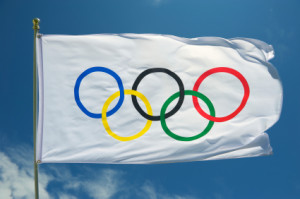Refugee athletes allowed to compete in 2016 Olympics
The International Olympic Committee (IOC) has announced they will now allow refugees to enter the Rio Games next year.
Thomas Bach, President of the IOC, announced the change in rules to the United Nations General Assembly, which adopted a resolution calling for all countries to stop fighting during the 2016 Olympics and Paralympic Games.
Bach asked the UN, in which 180 of the 193 member states supported the resolution, to help the IOC to identify highly qualified athletes.
“The Olympic Games are the time when the values of tolerance, solidarity and peace are brought to life,” said Mr Bach in a statement.
“This is the time when the international community comes together for peaceful competition.”
The announcement comes amidst the largest flow of refugees in Europe since World War II as people flee war torn countries and poverty in the Middle East and Africa.
Having no country to represent, refugees that are top athletes will compete under the Olympic flag and march to the Olympic anthem.
The long history of refugees excelling in sport, both in and outside the Olympics, shows unbelievable resilience and ability to overcome adversity.
2004 Olympic marathon silver medallist, Mebrahtom “Meb” Keflezighi, fled his home of Eritrea with his family as child.
By way of Italy, Meb, his nine siblings and their parents found safety in the United States in 1987.
Meb began running as a student at Memorial Academy San Diego and won both the 1600 meters and 3200 meters at the CIF California State Championships in 1994 for San Diego High School.
Unlike Meb, Pakistani-born Australian cricketer Fawad Ahmed realised his athletic skills long before leaving his home country.
At the age of 23 Fawad made his first-class debut in 2005 and resumed again in 2009, playing for Pakistan Customs.
Soon after arriving in Australia in 2010 on a short-stay visa, Fawad applied for refugee status after being persecuted by religious extremists in Pakistan for playing and coaching cricket.
Fawad is currently contracted to the Sydney Thunder in the Big Bash League, having been granted Australian citizenship in July 2013.
Many refugees face constant challenges to competitively participate in their sport due to restrictive visas and backlogs of processing time.
Iranian Kung Fu master Yaser Zomorodi is desperate to gain citizenship in Australia so he can rebuild his martial arts competition career and represent the country in the World Games this month.
Yaser was a five time champion in Iran and has won national titles in Australia but isn’t allowed to compete internationally.
After coming to Australia in 2013 by boast from Indonesia and spending 10 weeks in detention centres on Christmas Island and in Perth, Yaser remains on a bridging visa that doesn’t allow him to work.
Yasar said that the government-controlled, martial arts federation authorities banned him from participating in competitions after teams he had trained beat government-sponsored rivals.
“In Iran everything you do is controlled. I was arrested a few times just for being in public with my girlfriend. The police targeted me because I was famous. I was a Kung Fu Wushu champion and in Iran that is an important thing for many people,” Yaser said.
Though Yaser has qualified for World Games in Indonesia this month, and he remains unable to participate.
However, as Wushu Kung Fu sits on the verge of being added to the Olympics, due to the change of rules by the IOC there is hope for Yaser to compete internationally.
Ruby Brown
AMES Australia Staff Writer













